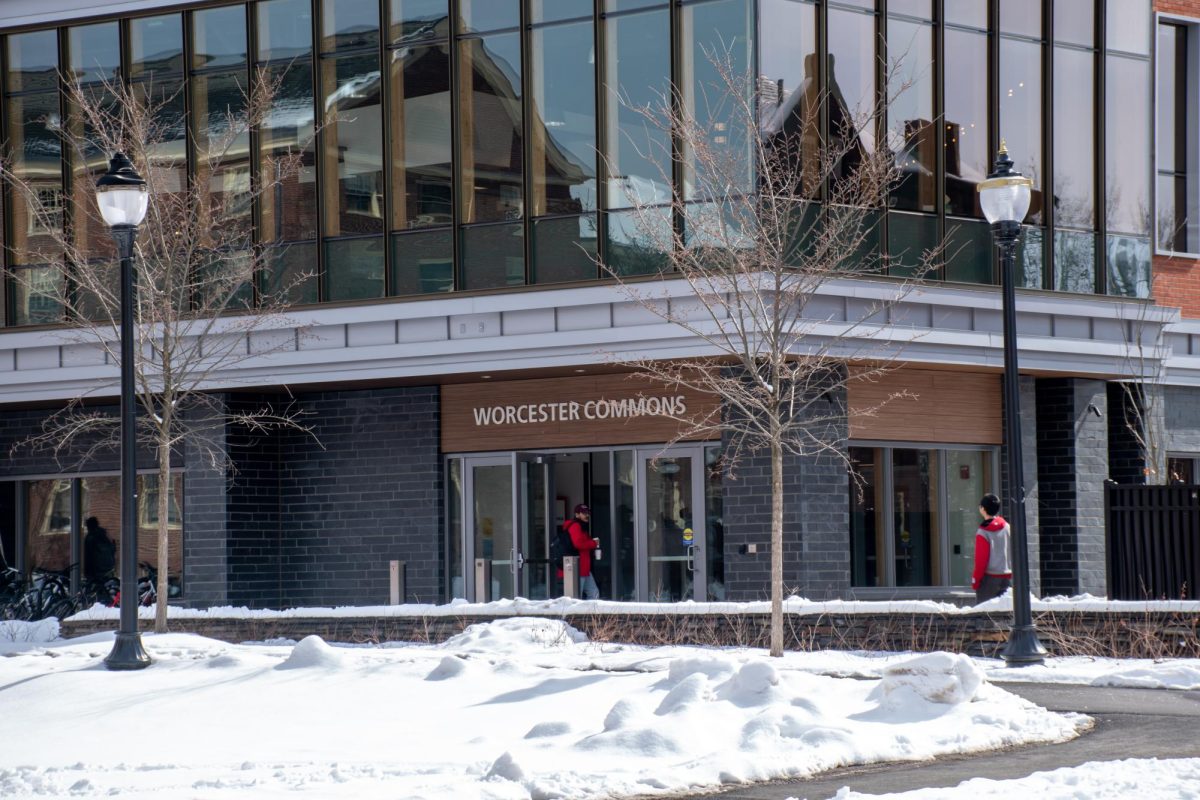
The study, which included research from the Johns Hopkins Children’s Center, was conducted at the University of Maryland College Park, where over 1,000 students were interviewed throughout their college lives, and were engaged in face-to-face evaluations regarding their thoughts, specifically, suicidal feelings.
Within a total of 1,085 students evaluated, 151 students, or 12 percent of the sample, said they had at some point contemplated suicide, while two of those students had actually attempted suicide.
Holly Wilcox, the study’s lead investigator and a psychiatric epidemiologist, reported that persons with depressed mothers were most likely to show signs of suicidal thoughts, as eight out of the 10 students in the study group who said they had planned to attempt suicide reported having depressed mothers.
Risk factors in the study included, but were not limited to, exposure to domestic violence, feelings of being unloved, depression and prolonged separation from family and friends, triggering anxiety.
The findings also showed that it is problematic for researchers to assume there is a correlation between an individual’s tendency to have suicidal thoughts and the act of attempting suicide. Research showed that students who thought about suicide frequently are no more likely to attempt it than others.
The research was funded by the National Institutes of Health and the American Foundation for Suicide Prevention.
Suicide is the second-leading cause of death among college-aged students. According to save.org, the Suicide Awareness Voices of Education, suicide takes the lives of over 30,000 every year, and the strongest cause is depression.
Christopher Overtree, a University of Massachusetts Amherst professor of clinical psychology, suggested that students should immediately seek help if they experience suicidal feelings.
“If someone is feeling suicidal, they need to be in treatment, because suicidal tendencies are, quite frankly, very dangerous,” he said.
“Students can overcome depression and anxiety through a combination of anti-depressant medication and cognitive-behavioral therapy,” he added.
Overtree explained that the combination of medication, which helps users cope with stress and depression, and therapy, which helps root out underlying causes of depression, will likely help anyone experiencing thoughts of suicide.
Mental Health Services, located in University Health Services in the Central area of campus is composed of professional staff members who offer services and care for a variety of psychological issues, providing therapy and psychiatric assistance.
Students may seek counseling at MHS to assist with any emotional difficulty they are experiencing.
Overtree recommended that students reach out to anyone they know, such as friends, family, or even staff members like a Residential Assistant or professor. He also said students should not feel alone in their problems.
“We can forget that what we are experiencing is very common,” he added.
Dr. Harry Rockland-Miller, MHS Director, said just being in college can be a preventative step towards suicidal tendencies.
“It’s also true that the suicide rate is half that of aged-matched peers who are not in college,” he said.
He added that students who had gotten treatment through counseling were less likely to attempt suicide.
“On university campuses nationally, of all completed suicide attempts, only 20 percent of those students had ever been to their college counseling center,” he added.
The Student Health Fee, which is paid by all students taking at least five credits a semester, will cover initial psychotherapy visits for students who wish to seek counseling, and the student’s insurance will be billed from there on.
Sophomore Tony Gattuso said he likely would not consult the help of MHS, even if he was going through a rough period.
“From personal experience, I would not go to MHS,” he said. “I don’t know if there are psych majors as therapists there, and personally I don’t like therapists.”
Sophomore Hopo Hammouda said he would rather deal with his problems himself.
“If you have a problem, you work it out, let it boil under the surface until it passes or talk to someone you trust, you don’t admit defeat and see a shrink,” he said.
Sophomore Kirsten Lindsmith would rather use the resources at her disposal.
“Of course [I would see MHS],” she said. “I’m already paying for it anyway, so I might as well get my money’s worth.”
In 2009, MHS was awarded a three-year grant of $300,000 that is being used primarily to fund programs aimed at suicide prevention. UMass was one of 22 schools to receive the grant, funded by the U.S. Substance Abuse and Mental Health Services Administration.
Funding was used to reinforce a “gatekeeper” model, established in 2006, which trains staff and faculty on campus to become more aware of students exhibiting signs of suicide and administer proper support.
Dr. Rockland-Miller added, “If any group on campus would like to have the ‘gatekeeper’ training, we will provide it free of charge, because of the grant we received.”
According to the MHS website, “UMass Amherst surveys have shown that over 80 percent of those who sought mental health care said services helped them stay in school and improve academic performance.”
Students experiencing suicidal feelings, or any other emotional trouble, may contact MHS at 413-545-2337 or the Suicide Prevention Lifeline at 1-800-273-8255.
Tim Jones can be reached at [email protected].







maria cecilia • Sep 27, 2010 at 11:17 pm
i would like to ask if i would like to take medicine specialty of psychiatry? it is posssible that i can enroll. i have previous problem like suicidal tendencies which happen a lot years ago. thank you